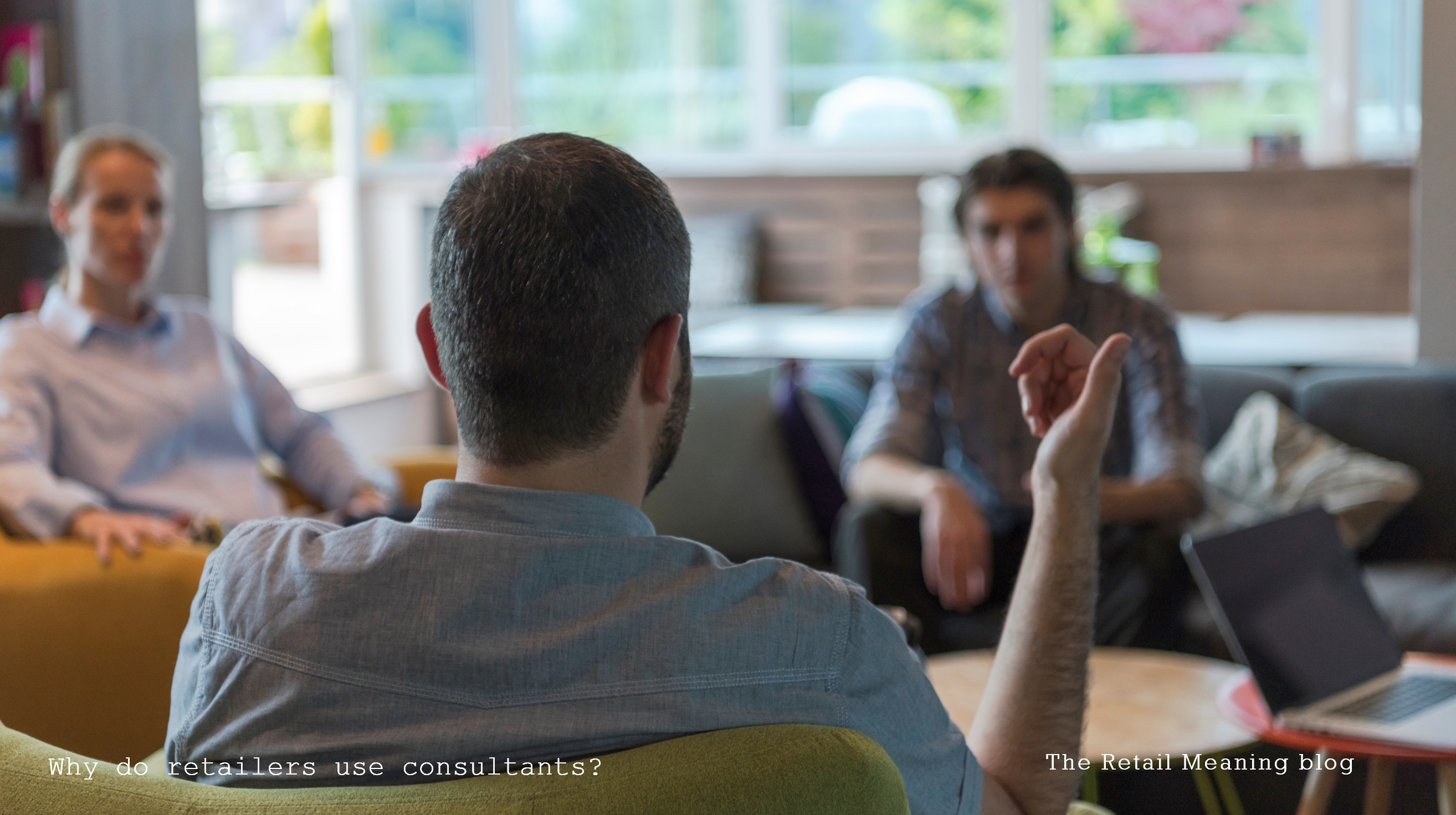In many areas of our everyday lives we seek the expertise of others to keep ourselves healthy, to maximize our investments, to make us beautiful and attractive and to find the best holidays and leisure destinations.
Whilst we acknowledge some degree of personal knowledge in these areas the value of the “consultant” is that this level of expertise lays well beyond our own and as a result we are happy to pay for that advice and the benefits that come from it.
However, why should a retail business, run by and employing retail experts, require the advice of additional expertise? In fact many business don’t see a reason and go very successfully down the route of developing skills and best practice from within.
Certainly the reputation of consultants has been tarnished with the criticism that the “experts” simply recycle what the retailer knows already, whilst the freely available expertise of a best practice business like John Lewis through its “State of Retail” reports all adds to the argument against the need for the traditional retail consultant.
However against this back-drop many retailers continue to invest in the skills of outside consultants…so why is that?
There are many reasons and here are some of the most common, in no priority order because the priority is different in each business.
Firstly, not all businesses are John Lewis, and are able to command the internal experience that they have or the ability to nurture and grow it. In particular new retailers, and businesses that have “stumbled” into the opportunities of retail rather that prioritized it, whilst not requiring permanent expensive retail resource are often in need of an injection of best practice.
From leisure businesses to theme parks and shopping centres to travel hubs, to manufacturers and brands with both wholesale and retail opportunities this regular and strategic injection is proving worthwhile.
Being a catalyst for change is another common reason for involvement where the input of fresh energy and ideas can be a real benefit to make the correct improvements quickly. Link this with the classic cliché of “a fresh pair of eyes” to identify and pinpoint where the opportunities are, and a wider view of any retailer’s particular market and crucially other retail markets are additional factors in being a catalyst for change and a catalyst for sales and profit increases.
As with all of us, time is a priceless commodity which if it cannot be created it can certainly be bought through consultancy. Retail “people” are invariably some of the busiest people of all and even the precious time for a day’s workshop can put unwelcome and unsustainable strain on the workings of the integrated retail process. Whilst we might all know how to paint a wall, we invariably employ a decorator to do it, and the same priorities play strongly in the professional world as well.
So a combination of time, energy, outlook, scope and in deed politics play a part. In an unfair world the external voice can sometimes be heard higher up the chain where the internal voice has been inaudible for years; but in a pragmatic world if this is what it takes to get the message heard and to make the change then that is also ultimately an argument for the external voice.
Certainly the word “traditional” is an important qualification of a “consultant” that needs to be updated and ideally cast into the project paper- mountains of history.
It goes without saying that the modern consultant in retail must be the ultimate in return of investment, through reducing the investment and maximizing the return.
So never has the element of experience over resource been more essential, with a thousand thoughts more important than a thousand feet, a single insight more valuable than an academy of analysts, a single action more profitable that a forest of theorists. Whatever the collective noun for consultants, an exultation of assistants, a swarm of suits, a herd of henchmen, in the modern context of consultancy this is becoming a rare breed in deed.
Collaboration, integration and legacy should be the definition of what modern retail consultant brings to business. Creating a true team relationship, bringing only what is missing, whilst growing what is already present, not filling the gaps with external bodies but building the essential integration between existing individuals and departments and leaving a legacy of internal expertise and ambition that can drive a retailer forwards long after the consultant’s shadow has left the building.
Personally, a final meeting is always obvious. It is a time when you are ignored when once you were intently listened to, a time for hearing innovation when once you spoke with revelations, a time when you stop giving and begin taking which must be the point when client investment is over and the returns begin.
The passing of knowledge, the building of confidence, the empowerment of enthusiasm.
Job done, invoice paid, client happy and on to the next retail business where a combination of time poverty and internal inexperience still make the “modern consultant” a very worthwhile investment, for some companies at least.
Tim Radley has been working with a variety of international retailers for nearly 25 years.
If you would like to know more about how to use internal workshops and collaborative projects to improve retail and VM operations for more profitable stores and efficient businesses then please email:
